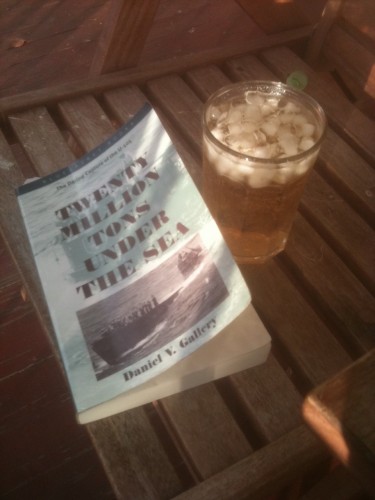The Mens Leadership Forum of Chicago will present Lt. Gen. (Ret.) Josiah Bunting III (Also here.) on December 9, 2011. He will be speaking on the topic of American Leadership, which in this context will mean leadership as personally exemplified by individual Americans over our history. He will address the question: how did certain earlier American generations produced cohorts of enormously capable leaders at the national level, and why we do not. One of the generations he will talk about is the generation that led the so-called Greatest Generation: Truman, FDR, Mac Arthur, Marshall, and Eisenhower. The meeting commences at 7:30 a.m., at the University Club of Chicago, 76 E. Monroe. The breakfast is always good there. Register here. I have read his book An Education for Our Time, which was interesting. (See this review of the book). I hope many of you will attend.
Arts & Letters
Some Light and a Lot of Heat
That is the way of it, when a great question falls into the public debate, or at least, that’s how it will look to the outsider. The extremes on either side bash away energetically at each other, the op-eds and the commentaries are reeled out like so many furiously unfurled rolls of toilet paper, until either the issue is resolved definitively, or everyone is quite tired of it — or some great event crashes in unexpectedly and renders the whole thing absolutely moot.
“Where Have You Been Whit Stillman?”
After 13 years, acclaimed writer/director Whit Stillman returns to the big screen with Damsels in Distress, a “comedy of manners” that echoes his previous work in Metropolitan, Barcelona and The Last Days of Disco. The Post’s Nathalie Atkinson convened this week’s TIFF-centric Culture Club to ask whether Whit’s wit has been missed.
Enough with my “regular” series of topics. I am becoming a bore on the subject, even to myself. (Especially to myself.) At any rate, Happy Thanksgiving! What a joy it is to share my thoughts with you from time to time. I like this corner of the internet.
The Indy Author Game
For those who are interested – below the fold…
68F on November 13, 2011
The Location: The front porch, Oak Park.
The Drink: Bourbon and ginger ale.
The Book: Twenty Million Tons Under the Sea: The Daring Capture of the U-505, by Daniel V. Gallery. A pal, a former destroyer officer as it happens, gave me this book with the highest possible recommendation. Rear Admiral Gallery was a salty character. He gives excellent and colorful and opinionated explanations of all aspects of the war against the U-Boats, with many anecdotes. A most educational read, and a page-turner. As of page 130/338 I can recommend it to all who are interested in such matters. If you visit Chicago, you can see the U-505 at its permanent berth at the Museum of Science and Industry, where it came to rest after Gallery’s men captured it.
We won’t get many more nice days like this one this year. Today is pretty much an aberration. I am expecting a severely cold winter this year, based on pure guesswork and gut feel, speculation about sunspot activity and its effect, contrarianism about global warning, general pessimism, and not much else.
(Below the fold, Gallery on the conning tower of the captured U-505, via Wikipedia.)
